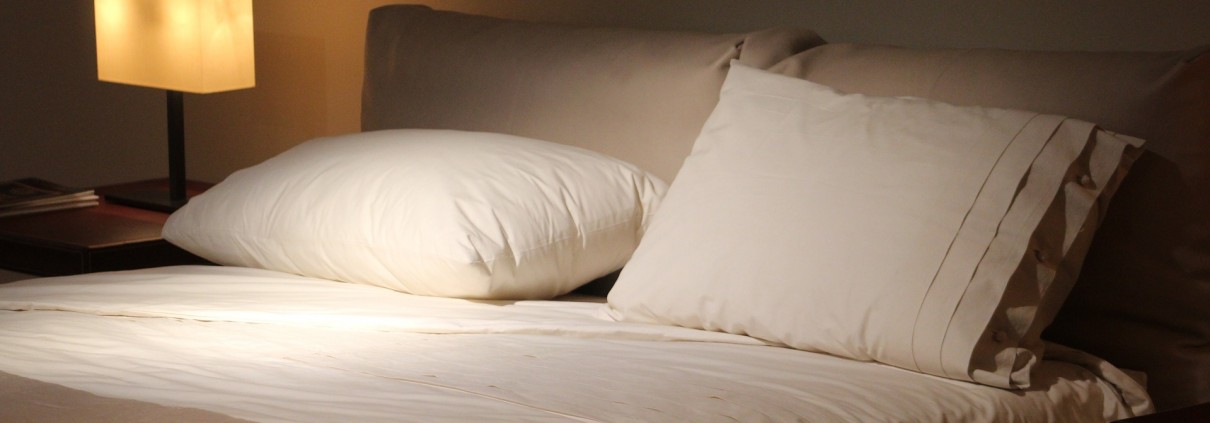Sleep Pattern Changes
Sleep patterns tend to change as we age. Most people find themselves having a harder time falling asleep and report waking more often during the night and earlier in the morning.
One of the reasons people wake up more is because they spend less time in deep sleep. Many older adults get less sleep than they actually need. It is a common misconception that sleep needs decline with age. Most people need seven to nine hours of sleep a day and this does not change with age. Older adults should strive for the same amount of sleep as younger adults.
Aging & Sleep Changes
Common sleep experiences for older adults can include the following:
- It may be harder to fall asleep
- Spending more total time in bed
- The transition between sleeping and waking up is often abrupt
- Less time is spent in deep, dreamless sleep
- Older people wake up an average of 3 or 4 times each night
- Older people are more aware of being awake
Sleep occurs in stages. A normal sleep cycle is repeated several times during the night and will include dreamless periods of light and deep sleep as well as active dreaming periods known as REM sleep.
Older adults will often share that they experience insomnia. So, it’s important to consider a person’s sleep hygiene and what they can do to improve their sleep. Research suggests that much of the sleep disturbance among the elderly can be attributed to physical and psychiatric illnesses and the medications used to treat them.
Causes of Insomnia For Elderly
Causes of insomnia can include the following:
- Trouble falling asleep
- Poor sleep habits
- Poor sleep environment
- Irregular sleep hours
- Consumption of alcohol before bedtime
- Use of electronic tablets before bed
- Falling asleep with the television on
- Anxiety from feelings of needing to go to the bathroom
- Discomfort or pain from chronic illness
Extended periods of insomnia can lead to other health conditions like depression, confusion, restless leg syndrome, narcolepsy, hypersomnia, and sleep apnea. It has also been reported to cause higher incidents of car accidents in elders.
Tips For Improving Sleep
Consider the following things to help you get a better night sleep:
- A light bedtime snack may be helpful.
- Many people find that warm milk increases sleepiness, because it contains a natural, sedative-like amino acid.
- Avoid stimulants such as caffeine (coffee, tea, cola drinks, and chocolate) for at least 3 or 4 hours before bed.
- DO NOT take naps during the day.
- Exercise (moderately) in the afternoon.
- Avoid too much stimulation, such as violent TV shows or computer games, before sleep.
- Practice relaxation techniques at bedtime.
- Try to go to bed at the same time every night and wake at the same time each morning.
- Use the bed only for sleep or sexual activity.
- Avoid tobacco products, especially before sleep.
- Ask your provider if any of the medicines you take may affect your sleep.
- If you cannot fall asleep after 20 minutes, get out of bed and do a quiet activity, such as reading or listening to music. When you feel sleepy, get back in bed and try again. If you still cannot fall asleep in 20 minutes, repeat the process.
Circadian Rhythm Changes With Age
In addition to changes in sleep architecture that occur as we age, other factors affecting sleep are the circadian rhythms that coordinate the timing of our bodily functions, including sleep.
Human beings typically have 1 of 3 Circadian Rhythms.
- The Early bird who gets up early and goes to bed early
- The Diurnal who gets up early, rests in the middle of the day, and stays up late
- The Night owl who gets up late and stays up late
Older people tend to become sleepier in the early evening and wake up earlier in the morning compared to younger adults. This pattern is called advanced sleep phase syndrome. The sleep rhythm is shifted forward so that 7 or 8 hours of sleep are still obtained but individuals will wake up extremely early because they have gone to sleep quite early. The reason for these changes in sleep and circadian rhythms as we age is not clearly understood. Many researchers believe it may have to do with light exposure and treatment options for advanced sleep phase syndrome typically include bright light therapy.
If you are living alone and struggling with sleep, reach out to Orchard at Athens for a complimentary consultation. We are happy to help you find a resources and people who can help.



